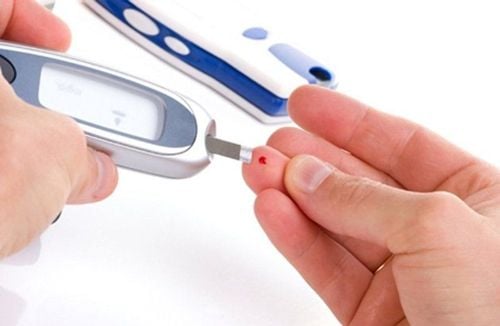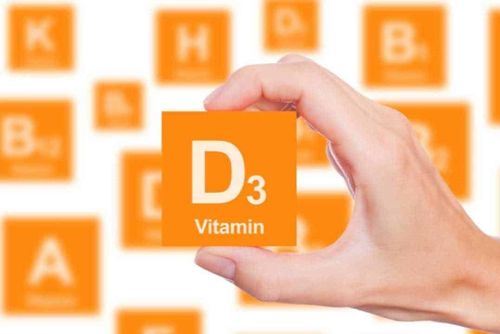This is an automatically translated article.
This article is professionally consulted by Master, Resident Doctor Dang Thi Ngoan - Pediatrician - Neonatologist - Department of Pediatrics - Neonatology - Vinmec Ha Long International Hospital.Sunbathing for babies is an effective way to stimulate the synthesis of vitamin D3, which helps in the development of the child's skeletal system. The best time to sunbathe children is before 9am, but if you miss this time, you can completely sunbathe your children in the afternoon.
1. What time is the best time to sunbathe in the afternoon?
Sunlight contains UVB rays that stimulate vitamin D precursors. Up to 80% of vitamin D is synthesized under the skin by the effect of UVB rays in direct contact with the skin, the remaining 20% vitamin D will be absorbed from breast milk and food daily. Therefore, parents should let their children sunbathe regularly, helping the child's body synthesize vitamin D, support the absorption of calcium, and help build strong bones.
So what time is it good to sunbathe in the afternoon? The best time to sunbathe in the afternoon is around 4-5 pm, when the sun is weak, infrared and ultraviolet rays (UV rays) have weakened. However, this time may fluctuate from day to day, from season to season, depending on weather conditions. In the summer, when the sun is strong, parents can let their children sunbathe around 5-6 pm. But in winter, the sun sets early, the afternoon sunbathing time can be increased to 3-4 o'clock.
Note, children should not be sunbathing during periods of intense sunlight, at this time the ultraviolet rays in the sunlight are very active, which is easy to damage the delicate skin of children.

2. How long should children sunbathe?
Whether it is morning sunbathing or afternoon sunbathing, parents should not let children sunbathe for too long. On average, each person can absorb the necessary amount of vitamin D if they are in the sun every day for about 10-15 minutes, provided that the feet, hands, legs, forearms are not covered and no sunscreen is used. sunny.
Nutritional institutes around the world recommend that children from 1 to 18 years old need 600-1000 IU of vitamin D/day, adults need 800-1000 IU of vitamin D/day.
At first, when children are just getting used to the sun, they can sunbathe for about 10 minutes. Then gradually increase the time to 15-20 minutes per day. Children can start sunbathing from the time they are 1-2 weeks old, especially those with signs of jaundice.
3. Notes when letting children sunbathe in the afternoon

Improper sunbathing not only does not synthesize vitamin D, but can also affect children's health. Therefore, parents should carefully remember the following notes after sunbathing for children:
Need to let sunlight shine directly on the child's skin. Do not take off all your children's clothes at once, but let them sunbathe slowly, sunbathing part by part. Children should be exposed to sunlight from behind. If the sun shines in front of the child's face or shines directly on the child's head for too long, it can adversely affect the brain and eyes. Let children bathe in the afternoon sun in a cool place with fresh air. Do not let children sunbathe where there is too much wind, especially in winter because it can cause children to catch colds. Also, children should not be sunbathing through the window, because their skin needs to be exposed to direct sunlight. If the child is sick and tired, you can stop sunbathing until the child is well again. If sunbathing in the afternoon on cold days, the child should wear socks, use a scarf around his neck, a hat, and only sunbathe the feet, calves, thighs, hands and arms; Do not sunbathe your back during these days. In case parents cannot sunbathe for a long time, parents can give their children vitamin D3 drops or spray. Note the correct dosage and carefully read the recommendations for your child's age as well as the manufacturer's instructions. Sunbathing is a great way to stimulate the production of vitamin D for children and support the absorption of calcium, helping to build strong bones. However, it is necessary to clearly understand how to sunbathe to ensure the safety of the baby's immature health.
As a key area of Vinmec Health system, Pediatrics Department always brings satisfaction to customers and is highly appreciated by industry experts with:
Gathering a team of leading pediatric doctors and nurses Faculty: consists of leading experts, with high professional qualifications (professors, associate professors, doctorates, masters), experienced, worked at major hospitals such as Bach Mai, 108.. All doctors are well-trained, professional, have a mind - range, and are knowledgeable about young psychology. In addition to domestic pediatric specialists, the Department of Pediatrics also has the participation of foreign experts (Japan, Singapore, Australia, USA) who are always pioneers in applying the latest and most effective treatment regimens. . Comprehensive services: In the field of Pediatrics, Vinmec provides a series of continuous medical examination and treatment services from Newborn to Pediatric and Vaccine,... according to international standards to help parents take care of their baby's health from birth to childhood. from birth to adulthood Specialized techniques: Vinmec has successfully deployed many specialized techniques to make the treatment of difficult diseases in Pediatrics more effective: neurosurgery - skull surgery, stem cell transplantation. blood in cancer treatment. Professional care: In addition to understanding children's psychology, Vinmec also pays special attention to the children's play space, helping them to have fun and get used to the hospital's environment, cooperate in treatment, improve the efficiency of medical treatment. Doctor Dang Thi Ngoan used to be a lecturer in the Department of Pediatrics - Hai Phong University of Medicine and Pharmacy. Having been granted certificates in Pediatrics at home and abroad such as: Westmead Hospital, Australia; Hai Phong Medical University. Currently, Doctor Ngoan is a Pediatrician - Neonatologist at the Neonatal Department of Vinmec Ha Long International Hospital
Please dial HOTLINE for more information or register for an appointment HERE. Download MyVinmec app to make appointments faster and to manage your bookings easily.














